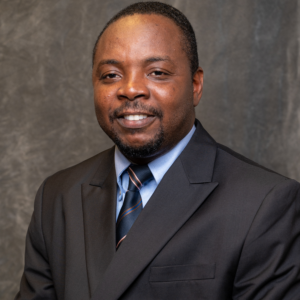Enoch Kordjo Azasu received a Bachelor of Arts in Psychology from the University of Ghana in 2010. He worked in the Psychology Department tutoring students and leading laboratory experiments in Cognitive Psychology specifically learning, attention, memory, and recall. In 2011, he began working as the administrator for Vine Christian School in Accra, a position he occupied for 6 years. Enoch then pursued an MBA in Total Quality Management from the University of Professional Studies in Ghana and graduated in 2016.
In 2017, Enoch was admitted to the Brown School’s Master of Social Work program and awarded the McDonnell International Scholars Academy Fellowship at Washington University in St Louis. He completed the Master of Social Work program in 2019 and continues his studies in the Social Work, PhD program at WashU. Enoch works with the Brown School’s Race and Opportunity Lab as a Research Associate on social mobility outcomes, mental health, and suicide prevention among black boys and young men.
Enoch loves doing community work and has served the youth in his community with a passion for more than a decade. He is the founder of STAY Ghana, a non-profit that focuses on suicide prevention among Ghanaian youth.
Scholar Highlight
Azasu Named 2022 Ideas Matter Fellow
August 5, 2022 — McDonnell Schlolar Enoch Azasu receives the Ideas Matter US-based Scholars Fellowship. This fellowship is awarded by the West African Research Association (WARA) for West African PhD students based in the US to have access to funding for fieldwork abroad.
Enoch Azasu received a Master’s in Social Work at WashU in 2017 and is currently pursuing a PhD in Social Work.
Scholar Highlight
Enoch Azasu Publishes Paper in Collaboration with Researchers at John Hopkins University
Azasu’s paper, “Assessing the Real-time Influence of Racism-Related Stress and Suicidality Among Black Men: Protocol for an Ecological Momentary Assessment Study,” describes a protocol development process that aims to capture real-time racism-related stressors and suicide outcomes among black men using a smartphone-based EMA platform (MetricWire). The study will address gaps in our understanding of Black men’s suicide outcomes in the social contexts that they regularly navigate and will clarify the temporal role of racism-related stressors that influence suicidal outcomes.
